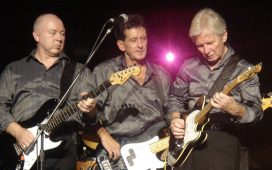On her 2016 debut, Liverpudlian electronic pop singer Låpsley worked with a brains trust of songwriters and producers to try her hand at chart anthems, trip-hop and – in the joyful Operator – a disco track that ruled festival season. For her second album, she seems to have brushed away the lint left by an excess of collaborators, instead writing and producing everything herself with input from a sole engineer, and honing in on a singular, clean aesthetic.

It opens with a reflection on the climate crisis, as she communes with glass, oil and water. This mindful moment seems to trigger an interrogation of the end of a relationship through the lens of the natural world, with trials of love cast as fires, avalanches, flowers and that ever-present water, with its inferred potential for nurture or drowning. Occasionally, the metaphors veer into cliche – “love we didn’t buy evergreen” – but even the more familiar images are given renewed power by her voice, which carries the laugh lines and furrowed wrinkles of lived experience.
Aside from two or three bits of filler, these are outstanding songs. First is like a reggaeton track cooled by a flash of rain, with an erotic charge to her eyelid-batting chorus line, “be my teacher, be my saviour” – but is she just telling her lover what they want to hear? Her delivery sustains the mystery. The brilliant singles Womxn and My Love Was Like the Rain also have a subtle Latin touch, while Speaking of the End is a supremely powerful piano ballad about moving on, a real Adele-grade tearjerker but played with the pointillist quality of Ryuichi Sakamoto. Throughout, she returns to a technique she used on 2014 breakout track Station (a song acknowledged by Billie Eilish as the main influence on Ocean Eyes), where she subtly pitches her voice down to an androgynous tenor, done most effectively here on breakup ballad Ligne 3. Opening with a nod to Kate Bush’s This Woman’s Work, she sets up a duet between her natural and pitched-down voices. Are these voices crowding her head, or are they the rueful thoughts of now-departed lovers filtering across to one another? It is the intensely poetic high of an often exceptional record.














